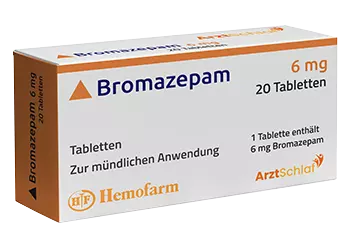Patients considering a thyroid operation should take proactive steps to understand their surgical journey. From diagnosis and hospital selection to long-term recovery, each stage plays a vital role in the outcome. Hospitals follow a structured approach, ensuring a safe environment for patients at every stage. Here’s a clear, step-by-step breakdown of how a thyroid operation usually unfolds in a hospital in Singapore:
1. Confirming the Diagnosis
The process starts with a firm diagnosis. Most patients are referred for surgery after an ultrasound scan reveals an abnormal thyroid gland. Blood tests help determine hormone levels, and in many cases, a fine needle aspiration biopsy follows. This quick procedure tests for suspicious cells, particularly when cancer is suspected. Based on the results, an ENT surgeon or endocrine specialist will discuss whether surgery is necessary.
2. Choosing the Right Hospital in Singapore
Selecting the right hospital is crucial. In Singapore, hospitals offer structured support from consultation to aftercare. It’s important to look for a hospital in Singapore that provides a multidisciplinary approach, combining endocrinologists, surgeons, and anaesthetists. This ensures consistent communication across departments and smooth coordination throughout the procedure.
3. Preoperative Consultation and Planning
After the decision for surgery is made in a quality hospital in Singapore, the patient will attend a detailed preoperative consultation. The surgeon will outline the surgical approach required, which may involve removing the entire thyroid gland (total thyroidectomy) or just one side of it (hemithyroidectomy). Risks such as voice changes, calcium imbalance, and scarring are discussed. Patients with other health issues may also undergo cardiopulmonary assessments or anaesthetic reviews.
4. Preparing for Hospital Admission
Before the thyroid operation, patients receive instructions on fasting and medications. Those on thyroid medication may need dosage adjustments. Pre-admission procedures typically involve a COVID-19 test, routine blood work, and occasionally a chest X-ray at a good hospital in Singapore. Patients should inform their medical team of all current medications and supplements.
5. Undergoing the Thyroid Operation
The surgery typically takes one to three hours and is performed under general anaesthesia. An incision is carefully made along the lower part of the neck. During the procedure, surgeons carefully preserve nearby structures, including the vocal cord nerves and parathyroid glands. If cancer is detected, lymph node removal may be included. Hospitals in Singapore are equipped with monitoring tools to ensure safety during surgery.
6. Recovery and Immediate Postoperative Care
After the thyroid operation, patients are taken to a recovery unit for monitoring. Most will remain in the hospital for one to two days. Nurses monitor vital signs, check for signs of bleeding or infection, and assess voice and swallowing function. Pain is usually manageable with standard medication, and patients are encouraged to move around within the day.
7. Discharge and Follow-up Plan
Patients receive detailed discharge instructions, including wound care and activity restrictions in a reputable hospital in Singapore. Patients should refrain from engaging in physically demanding activities in their first week of recovery. Follow-up appointments are scheduled to review healing and pathology results. If the thyroid is removed entirely, long-term hormone replacement is needed. Blood tests help fine-tune the correct dosage.
8. Hormonal Adjustment and Long-Term Monitoring
For those on thyroid hormone replacement, regular blood tests are essential to monitor levels. It can take several weeks to adjust to the correct dosage. Patients should watch for symptoms of imbalance such as fatigue, mood swings, or weight changes. In the case of thyroid cancer, ongoing surveillance might include ultrasounds or radioiodine scans.
9. Vocal and Calcium Function Recovery
Mild voice hoarseness may occur post-surgery, especially if the nerves near the vocal cords are irritated. This usually improves over time. Calcium levels are monitored since temporary drops can cause tingling or muscle cramps. If needed, calcium supplements are prescribed. Patients should promptly inform their medical team if any ongoing or unusual symptoms arise.
10. Returning to Normal Life
Most patients resume daily routines within two weeks. While recovery time varies slightly depending on the extent of surgery, many return to work and light exercise soon after. The scar generally fades over time and may be treated with silicone gels or patches. Follow-ups every six to twelve months are typical to ensure stable thyroid function.
Patients considering a thyroid operation in Singapore should take proactive steps to understand their surgical journey. Contact the National University Hospital (NUH) to discuss your treatment options and explore a detailed care plan that meets your health needs.




